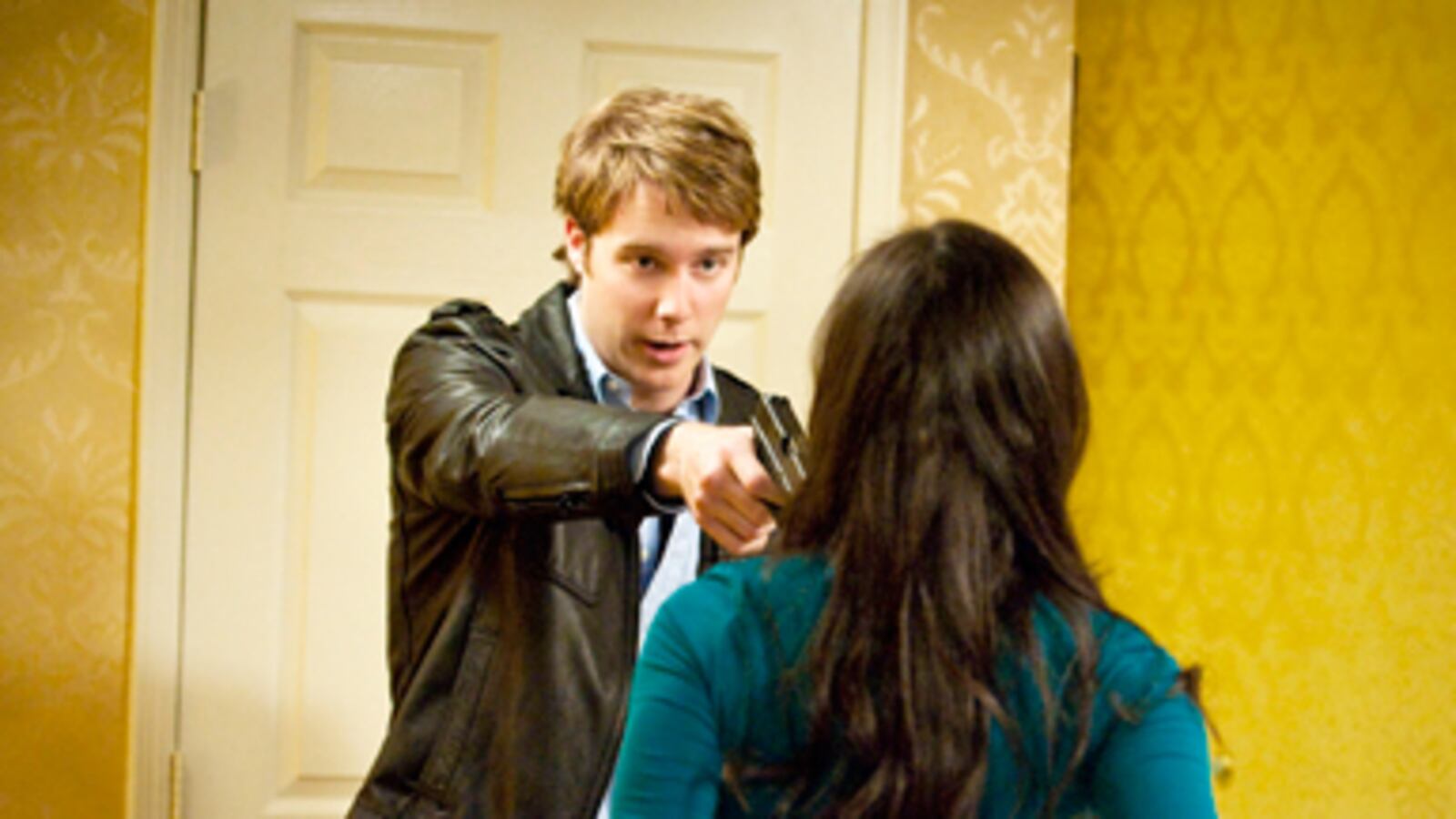As a former sex worker, I have long understood that our society has little interest in the well-being of women in the sex industry. Not surprising, then, that Lifetime would choose to ignore such women altogether in its latest made-for-TV movie, The Craigslist Killer, which premiered Monday night.

The Craigslist Killer depicts Philip Markoff, the medical student accused of killing Julissa Brisman in a Boston hotel room after hiring her for a "massage" on Craigslist. But for anyone interested in better understanding the lives and experiences of women who sell sex online, it’s better that you (most likely) didn’t tune in. Described only as “a masseuse who advertised her services on Craigslist,” Brisman was not mentioned in the movie’s advertisements by name, nor did she appear on its list of cast and characters. From the way the production was billed, you’d think that it was Megan McAllister, Markoff's fiancé, who was the real victim—a woman betrayed by a man described as “charming,” “charismatic,” “destined for greatness” and one of “Boston University’s brightest med students.”
If Lifetime can portray Markoff as more than just a murderous degenerate, could the network also grant his victims some measure of the same respect, rather than treat them as anonymous bit players? Sex work, as I see it, is a feminist issue. To some, sex workers who are victims of violence and other crimes get what they deserve. Pervasive is the belief that by engaging in prostitution, a woman forfeits all rights and deserves no protections. This belief is legitimized by laws that do nothing to protect prostitutes, but criminalize their work. With beliefs like these so pervasive in our society, it is no wonder that men like Markoff target women who sell sex.
By “Television for Women,” it seems that the folks at Lifetime really only mean some women—victims almost exclusively.
The complicated fact that a woman can be both a prostitute by choice and a victim of a crime is one that Lifetime, apparently, would rather ignore. In The Craigslist Killer, Markoff’s victims, three in total, are all clearly identified by the film as “not prostitutes,” even though Markoff’s first known victim, Trisha Leffler, was a self-identified call-girl, and Brisman is said to have sold massages in the "Erotic Services" section of Craigslist, which anyone with even a casual knowledge of the industry knows to mean she sold sex. It is highly unlikely that either Leffler or Brisman, who’d both flown from other cities to conduct their work in Boston, brought along massage tables, even though the movie makes the point of saying they did.
Other than these details of Markoff’s victims, little else is revealed. In the scene leading up to the murder, the actress playing Julissa is dressed conservatively, her ethnicity unclear (Julissa was Dominican American). She is shown briefly on the phone with her mother while setting up a massage table before Markoff arrives. The scene to follow lasts a matter of minutes— just long enough for Julissa to tell us she’s a graduate student in New York, studying to become a drug and alcohol counselor, before Markoff blungeons her with his gun and shoots her to death.
The story of Brisman’s life is as complex and interesting as Markoff’s, and yet, in Lifetime’s rendition of her murder, it remains untold. Julissa Brisman was not a masseuse. She was a prostitute, and contrary to the movie's portrayal, she did not beg but fought for her life. These are important facts, but, like so many other details about the life and death of Julissa Brisman, they were omitted, obfuscated, or blatantly changed. That Lifetime has failed, yet again, to produce a work of nuanced storytelling is no great surprise, but from the network that bills itself as “Television for Women,” this shouldn’t go unchecked.
By “Television for Women,” it seems that the folks at Lifetime really only mean some women: victims of domestic violence, victims of rape, victims of trafficking even—victims almost exclusively. But certainly not anyone who’s willingly made a decision to sell sex. That sex workers be recognized as human beings and that violence against sex workers be recognized as wrong is apparently still too controversial for a Lifetime production. And yet the network bulled ahead anyway, unapologetically rewriting Brisman as a more “sympathetic character” and positioning Megan McAllister as the movie’s female lead. It is as if Lifetime assumes its demographic would more likely—or perhaps rather— identify with McAllister, the sweet and intelligent, if naïve, blond-haired med student.
That sex workers are not “perfect victims” in the eyes of the public, sex work advocates argue, makes them all the more perfect targets for monsters like Markoff. For Lifetime to sanitize Markoff’s victims of their true identities only perpetrates such myths. It is time that not only sex workers but all women—and men, for that matter—find such myths outrageous and insulting, and it is time we demand that they change.
While I myself have never been a victim of violence—not while working in the sex industry, not before, not since—I, like all women, am affected by such myths. For years I internalized the particular belief that the life of a sex worker is, if not worthless, worth less. I grew up with no knowledge of the industry short of Dateline specials and made-for-TV movies like this, cautionary tales about girls without families or backstories, girls with fake names like "Candy" or “Mercedes,” prostitutes existing only from the waist down. Girls who sold sex were fishnet-stockinged legs leaning into tinted windows idling at red lights. They were girls—never women—foolish, desperate: the butt of jokes.
When I became a sex worker, it follows then, that I thought I was exceptional. I was white, educated. I didn’t do drugs. Raised by my working-class, more-or-less single mother, I had clawed my way up from white trashdom to make it to college and, eventually, to New York City where, smart and resourceful, I was driven to succeed. At the time I sold sex on Craigslist, I was a graduate student at a prestigious university, just like Julissa, and, just like Julissa, I was working on myself. Twenty-six years old, I was seeking desperately through various ways and means to change and improve my life—a life that, I concede today, simply wasn’t working.
It is my experience that when society turns its back on you, you turn your back on society. It takes courage, humility, and strength to turn back around. Part of what I deem my recovery was learning that I wasn’t exceptional. In the most important ways, I was just like everybody else—just like other women who sold sex and just like women who did not. The only real difference between Julissa and me, I realize today, was our luck. Today I see it is no great moral failure to have stripped in college, nor to have had sex for money years later, but the fact that individuals who do so are cast off like trash—not just by murderers disposing of the evidence but in the hearts and minds of the general public—this is, in my opinion, our society’s greatest shame. Julissa never will, but may we someday see the day when tolerance, love, and respect for all human life is the rule— even on Lifetime.
Melissa Petro is a researcher, writer, educator, feminist and former sex worker. She writes for The Huffington Post, Rumpus.net, The Nervous Breakdown and elsewhere.






